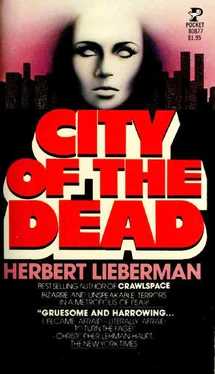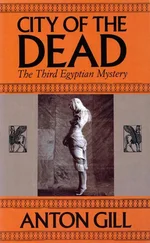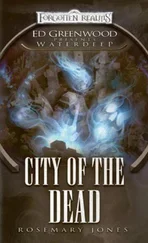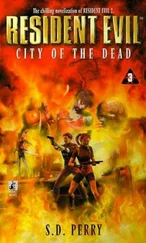“I don’t figure ‘the people’ ever saw too much of it,” Cynthia says.
Haggard nods. “You said something about a gallery?”
“Sure, she had a gallery uptown.”
“Know which one?”
“Nope. East Side someplace. Pretty posh. You know which one, Cyn?”
The girl shakes her head, gazing at Haggard forlornly. “Don’t worry about that,” the detective says. “I’ll find the gallery. What I’m concerned about now is where he took her. You don’t have any ideas, do you?”
He glances back and forth from one to the other, his fierce eagle glance causing them uneasiness.
“All I know,” says the girl at last, “is that wherever it was, she didn’t want to go there. He dragged her outta here.”
“Him and his pals?”
“Yeah. He come over here last night with three of them. We heard all this screaming and fighting. Things crashing on the floor.”
“You didn’t go up?”
“No, man.” The Greek does his half turn. “Like I told you, when you hear that kind of stuff six, seven nights a week, after a while you stop hearin’ it. And anyway”—he looks away, eyes lowered and ashamed—“there were three, four of them. And they’re real creeps. Guns and everything.”
“Can’t say I blame you.” Haggard snaps his notebook shut.
Tsacrios glances at the girl a moment, abashed, a little contrite. “She wanted me to go up and try and stop them. You live long enough you learn to keep your nose out of where it don’t belong. But if I ever see him again, minus the flunkies—”
“Sure,” says Haggard. “I understand. Got a phone I can use?”
“Downstairs in the studio,” Tsacrios mutters.
“Studio?”
“Yeah—I got a loft below. I’m a sculptor.”
Downstairs, a few moments later, Haggard stands in another loft with the exact same long-high-wide configuration of the demolished studio above. This, too, is an artist’s studio but’ it looks more like the back room of an auto-body shop. Strewn about the place in various stages of dismemberment are the remains of what must be at least a dozen fatal collisions—smashed fenders, demolished hoods, detached doors, rusty universals and drive shafts, grillworks—rewelded and tortured into writhing shapes, tall, spikelike trees, brittle sea flora, long, spiny pincushion shapes, and delicate weblike filigree, all wrought of chrome and hammered steel.
“Right back there”—the young Greek waves vaguely at the shadows in the rear—“on the wall.” He leads the bewildered detective through a maze of devastation—ghastly wreckage, acetylene torches, riveting guns, welding masks, long, white rubber hoses depending like vines from the ceiling, screwed into huge green metal tanks of pure oxygen.
“Help yourself.” Tsacrios propels Haggard forward into the shadows, then at a point turns and leaves him, weary and perplexed, beside a wall phone.
In a matter of moments, he has dialed the 17th Precinct and is speaking directly to the desk sergeant. “Hello—Wershba?—I’m down here on Varick Street. Yeah, you were right. This is the place all right, but the girl’s blown.” Swiftly he describes the situation and everything he’s seen here. “What I need quick is a rundown on everything you’ve got on this New World Militia bunch. I want names, prior arrest records, fingerprints—anything you got. Particularly some guy by the name of Warren. No, no surname. All I got is Warren. Caucasian. Medium height. Sandy hair. Mid-twenties to early thirties. Glasses. Active in revolutionary activities. Might be Middle Western. See what the Feds have. Also, any of these other guys you can lay hands on—pull ’em in for questioning. There’s an awful mess here and, frankly, it looks bad. This Warren character has taken the girl. Yeah—sometime last night. We’ll need a couple of lab guys down here right away. See what kind of prints they can lift off all this mess. Also, I want a rundown on every art gallery—that’s right, Wershba-—art gallery. Art—a—r—t. All galleries, midtown area, East Side,, that know of or that have ever dealt with an artist called Emily Winslow. And, Wershba—listen to me. Listen hard. Not a word to anyone. This is the Chief’s kid. That’s right—Konig’s daughter. So don’t blab it around. He’s not to know a thing till we’ve got something more definite. From what I’ve seen up here, and from everything I just heard, I got a sick feeling in the pit of my stomach.”
In the center of the studio area once again, Haggard stands dwarfed and mute before a 1953 Oldsmobile grill-work that has been unraveled by means of blowtorches and refashioned into what appears to be a chromium hat-rack. A small white tag identifies it as KINETIC APOCALYPSE #3. He lifts his Borsalino again and scratches the back of his head. “What’s that supposed to mean?”
“What’s what supposed to mean?” Tsacrios glances up from a struggle with the cork of a half-gallon bottle of Chianti.
“Kinetic Apocalypse Number Three.”
“Oh, that.” The cork is liberated with a triumphant pop. “Don’t mean nothin’ really—just a nude of Cynthia.” Haggard glances back and forth from the lithe, willowy beauty of the black girl to the thorny, lethal-looking chrome and shrugs. “Okay—if you say so.”
The young Greek extends a glass of wine toward him. “How about it?”
“Thanks.” The detective smiles wistfully. “Another time. Haven’t had my dinner yet. Guess I’ll mosey over to the local coffeehouse.”
“This is as far as I go.”
The pert, sullen face glances up at him in the dim orange glow of the streetlight. “But you said—”
“Never mind what I said. This is where we part.”
9:15 p.m. Somewhere in the West Village.
Konig and the girl stand in the dank, wavery shadows of a partially gutted tenement destined for imminent demolition. A tattered police order instructs all remaining occupants to vacate the premises by a certain date. Above them the sporadic lights of the last few remaining tenants—the obdurate and those with no place to go—flicker forlornly in the hazy April night.
“But you said—”
“I know what I said.” Konig grows curt, gruff, a little nasty. “But this is it.”
Surprise and hurt mingle in the girl’s eyes. A child denied a long-awaited present It is now fifteen minutes since Konig paid the bill at the little Italian restaurant on Minetta Lane, then started walking west toward the girl’s apartment over near the river. Now having reached there, he has what he’s come for. An address. In that time they’ve laughed and chatted. Been easy with each other. She’d been happy, secretly smug and congratulating herself on what an easy thing it had been to win him over. She’d been thinking of herself as shrewd and him as foolish. But not unkind. She doesn’t think he, will try to hurt her as some of the others have.
Now, suddenly, the momentary laughter is all gone. He is stem, harsh, censorious. There is something even a little menacing about the way he looks at her. As if he were furious with her.
“Ah, come on now.” She pushes up against him in the shadows, her child’s lips eagerly seeking his old man’s mouth. The obscenity of it offends him and he pushes her off.
“Come on, Poppy. Don’t be scared.”
“I’m not scared, and stop calling me that disgusting name. I’m not your poppy.” He looks up at the gutted, squalid thing, the tangle of brick and rusting iron crouching above them. “You live in this?”
The girl seems suddenly grief-stricken, at a loss, unable to fathom all the sudden rejection.
“Go upstairs now,” Konig says more softly, a bit of the edge off his voice.
She stares at him helplessly, fright and puzzlement in her eyes. Then she turns.
Читать дальше












